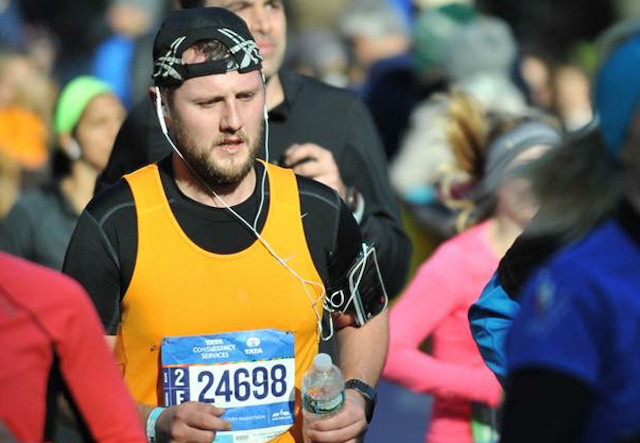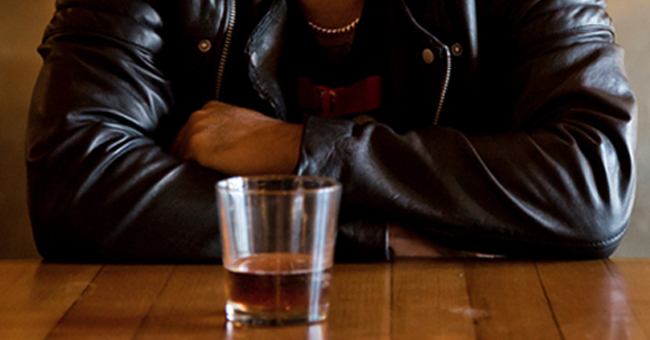At age 26, Jack McGarry seemed to have it all.
Barely into his 20s, the Belfast native turned New Yorker had opened what would become of the world’s most successful bars, The Dead Rabbit Grocery and Grog. Since its inception in 2013, the bar had garnered countless industry accolades, including the World’s Best Cocktail Bar at Tales of the Cocktail and two consecutive wins as the Best Bar in North America in the World’s 50 Best Bars competition. McGarry himself had been named Tales of the Cocktail’s International Bartender of the Year in 2013, the youngest ever recipient of the honor. He and his business partner, Sean Muldoon, had just released their first cocktail book, The Dead Rabbit Drinks Manual, a collection of popular recipes from the bar’s early days.
But all that success came at a price.
Behind the scenes, McGarry was struggling to cope with the long hours and the stress of managing a successful brand that extended to a consulting business (aptly named The Best Bar in the World) and the beginning stages of a second bar, BlackTail.
And, like many in the business, he turned to the bottle to cope.
“I got into this industry when I was 15 and started drinking heavily. It became a habit that I never switched off, and it got progressively worse over time,” McGarry explains.
Eventually, the drinking caught up to him.
“About a year ago, I had a complete breakdown,” he shares. “I couldn’t function. I couldn’t leave the apartment. I saw lots of doctors, got prescribed a lot of pills, but I ultimately had to confront the underlying issue: that I am an alcoholic.”
McGarry, now 27 and six months sober, is not alone in his struggle.
“Addiction in this industry is rampant and somewhat tolerated,” says Bobby Arnold, an Atlanta-based bartending veteran and recovering alcoholic. “A bar is a very easy to place to hide your addiction. What is ‘normal’ here is not normal in other workplaces,” he explains.
Anne Bartolucci, Ph.D, C.B.S.M. and president of Atlanta Insomnia & Behavioral Health Services, P.C. regularly treats hospitality industry professionals and says alcohol can seem like an “easy fix” to deal with the pressures of the job and wind down after a stressful shift before bed, especially because it’s so readily available onsite.
“People are consuming much more than they should be, even if they aren’t addicted,” acknowledges Meaghan Sinclair, Boston’s USBG Vice-President and owner of Booze Époque, a bartending, catering, and consulting company.
Just like McGarry, Sinclair had an epiphany about her own health last year.
“I came to the revelation that I was drinking more than I wanted to, that I’d gained 50 pounds, that I wasn’t getting good sleep, that I wasn’t taking care of myself. This industry can take a tremendous toll on the body and on the mind, and you wake up and realize you’re not 23 anymore and that lifestyle is no longer sustainable.”
Jen Gregory, President of USBG Chattanooga and owner of Vinthusiasm, a wine consulting business, agrees. “As we make lifelong careers out of this, many paradigms are going to have to shift from the ‘wild and crazy college job’ days of bartending that existed when I began over 20 years ago to a sustainable, healthier lifestyle.”
“A lot of our leaders are still drinking a lot and not taking care of themselves and not being a great role models for young professionals. I want to change that. We need more accessibility, more openness, and more dialogue,” says McGarry.
 Since coming to terms with his alcoholism, Jack McGarry has overhauled his life and has made self-care and wellness a priority. “I’m in the best shape I’ve ever been in, mentally, physically and spiritually,” he says.
Since coming to terms with his alcoholism, Jack McGarry has overhauled his life and has made self-care and wellness a priority. “I’m in the best shape I’ve ever been in, mentally, physically and spiritually,” he says.
Also helping to shatter the silence around mental health and addiction is Kat Kinsman, author of the forthcoming book Hi, Anxiety and founder of Chefs with Issues, where industry professionals can share stories and resources for coping with alcohol and drug abuse, anxiety, depression, eating disorders, and similar issues.
Similarly, Chicago’s Uby Khawaja, Brand Ambassador at Tequila Tromba, moderates a private Facebook group for hospitality workers dealing with depression and other mental health problems. “It’s a private place for us to vent and get advice from fellow peers.” He hopes that by having these conversations, reaching out to other professionals, and speaking openly about his own depression, he can help “get rid of the taboo.”
Even with the decreased stigma, there’s still a barrier to treatment for those who do need professional assistance.
“A huge issue is the lack of company provided healthcare,” Caitlin Ouding, bar manager of Jackson Tavern in Chicago explains. “Outside of management roles, the vast majority of us are uninsured or so woefully under insured that we might as well be uninsured. It’s difficult to look at a night of tips and say ‘I could go to the clinic and have my medication refilled, or I could make sure I pay my gas bill and buy food that doesn’t come from my bar.’”
“Unfortunately the lack of mental health insurance in this industry leaves a lot of people’s disorders untreated, self-diagnosed, or worse, self-medicated,” agrees Chris Marsicano, CEO & founder of Red Dwarf Hospitality Management and 2016 Tales of the Cocktail CAP. “The most challenging things I’ve found in seeking professional help are finding both the time and money to cover it. Therapy isn’t cheap, SSRI’s aren’t either, and without the proper access to insurance, getting the help you need can seem near impossible in an industry where you sometimes live shift to shift,” he continues.
Some American non-profits are stepping in to fill the gap. Washington, DC’s Restaurant Recovery helps restaurant workers find and pay for drug and alcohol treatment and counseling and also provides sober support networks and identifies employment opportunities post treatment. Others, like Hospitality Cares New Orleans, Chicago’s Un86’d, and Atlanta’s The Giving Kitchen, provide emergency grants to restaurant workers facing unanticipated hardships, and some mental health and addiction issues are covered by grants.
“But there is always work to be done,” says Ouding. “Facebook groups are great, but I would love to see mental health specialists and industry professionals meet and create a book or podcast or another set of resources for us beyond social media.”Beyond seeking professional treatment, what other options are available for those suffering from depression and anxiety?
“I’m a huge fan of mindfulness,” says Bartolucci. “There are lots of great books and sites on how mindfulness can help people better manage stress, which are huge triggers for anxiety and depression. Mindfulness also provides a nice option for relaxation that doesn’t involve substances and also teaches awareness, which can give you insight into when you are crossing certain boundaries, professionally and personally.”
She also encourages her patients to pursue other interests outside of work and make self-care a priority, especially sleep.
Putting yourself first can be hard for hospitality professionals, as “you’re constantly doing things for other people first and neglecting yourself,” says McGarry. His self-care regimen includes weekly therapy sessions, ongoing outpatient rehabilitation, AA meetings, a complete change in his diet and lifestyle, regular runs, time with his dogs, time off on weekends and ensuring his staff has time for the same. “I’m in the best shape I’ve ever been in mentally, physically, and spiritually,” he continues.
“I opened my second bar a month ago, and this time, I could actually celebrate it fully and remember it all the next day. This industry has been very good to me, and now it’s my turn to give back. If my story can help just one person, I’ve done my job.”
If you or someone you know is struggling with alcoholism or depression, see here, here and here for lists of organizations offering resources for advocacy, coping, support and inpatient treatment options.





